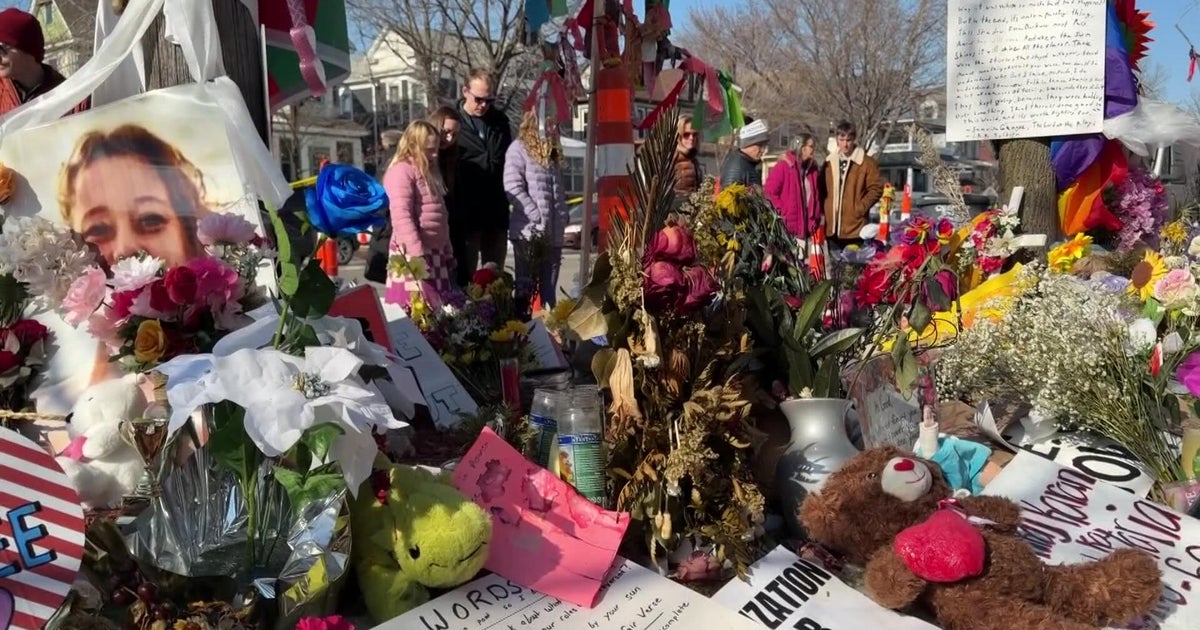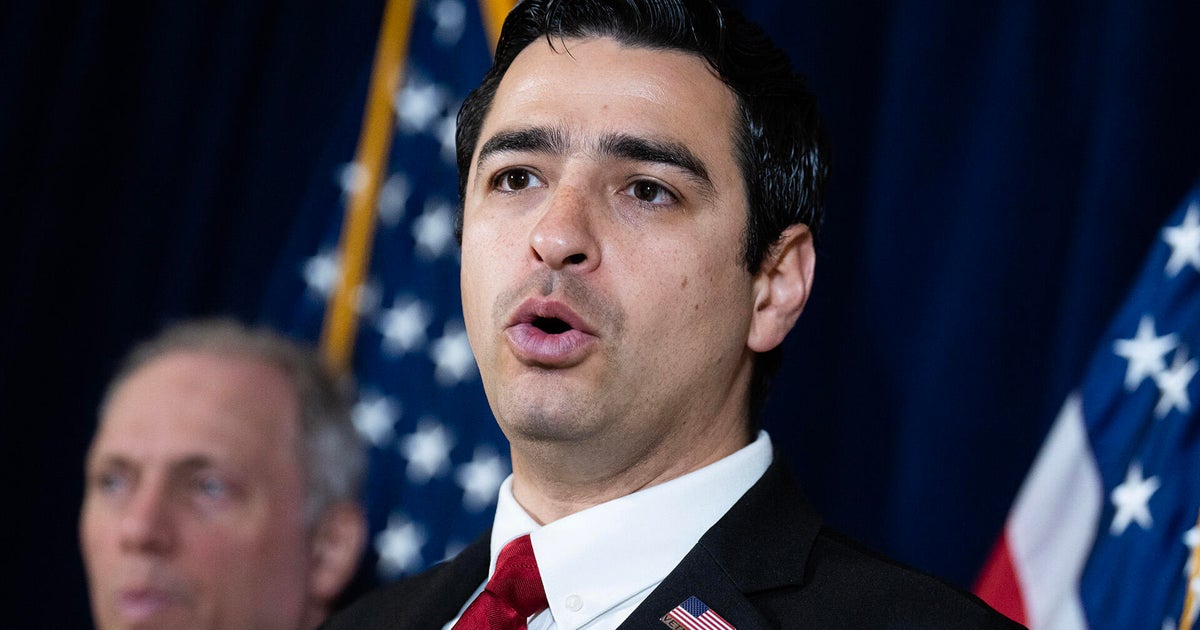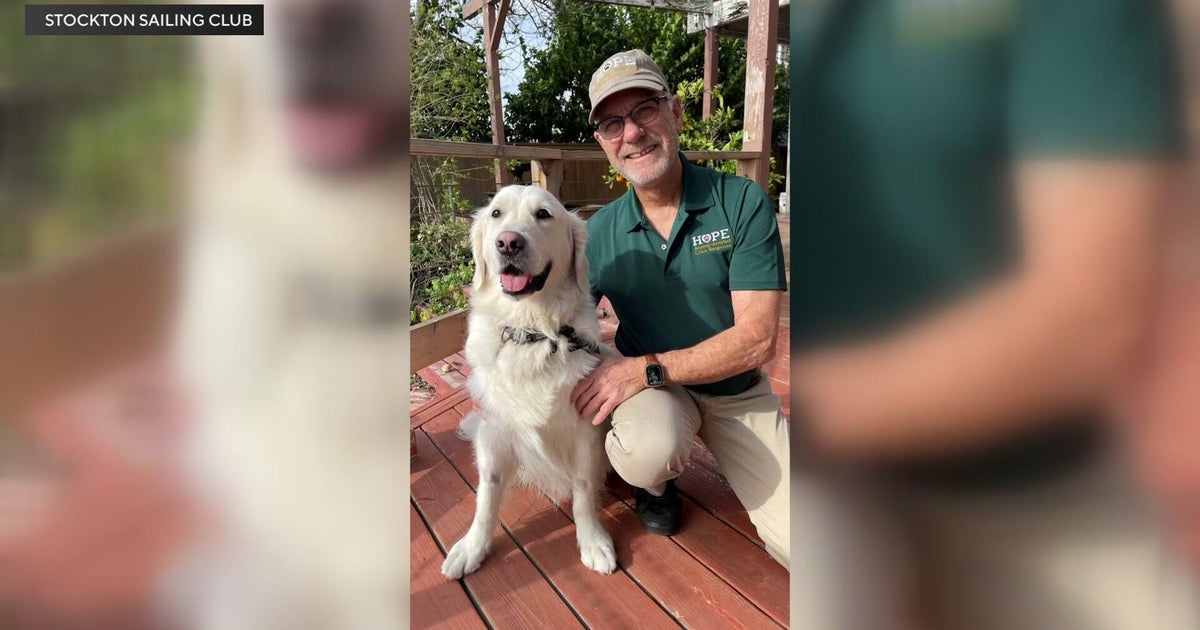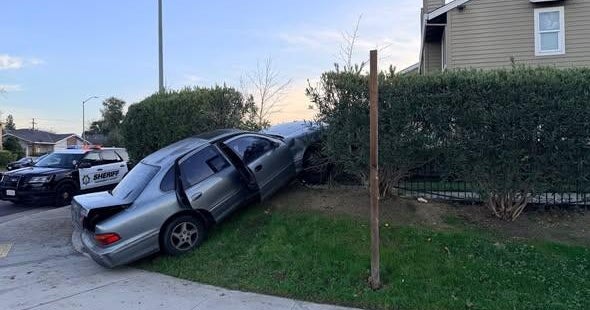A conversation on bail reform: Law enforcement experts sound off on what's at stake
NEW YORK -- CBS2's Aundrea Cline-Thomas hosted a panel discussion on bail reform, hearing from retired NYPD First Deputy Commissioner Ben Tucker, retired Judge Jeffrey Cohen and Brooklyn Assemblywoman Latrice Walker.
Below is a transcript of their conversation.
Aundrea Cline-Thomas: I'm Aundrea Cline-Thomas. Welcome to "A Conversation on Bail Reform." It's one of the most polarizing topics in Albany. It even has Governor Hochul negotiating a compromise to implement changes to the law. Let's take a look at how all of this started.
Cline-Thomas: We want to continue the conversation now with a panel discussion. Joining us are Ben Tucker. On December 31st, Ben Tucker retired as the NYPD's First Deputy Commissioner. His career with the department began in 1969 and he worked his way up, serving in the second highest ranking departmental position when he left. Also here today is retired Judge Jeffrey Cohen. He served nearly 30 years on the bench, including in the Appellate Division of the Second Judicial Department, the State Supreme Court and as a Westchester County Court Judge. He currently practices law with firm Abrams Fensterman, LLP. And Brooklyn Assemblywoman Latrice Walker joins us virtually, as she's hard at work in Albany. A licensed attorney who was elected in 2014, she sponsored the original bail reform legislation and continues to advocate to keep the current law in tact.
Thank you all so much for being here for this really important discussion. As you all know, bail reform passed in 2019 in the Legislature after Democrats gained the super majority. And now, Governor Hochul is talking about negotiating changes to the law.
Assemblywoman Walker, we're going to start with you. You are currently on a hunger strike right now to keep this law in tact. Have you talked to the governor about the changes that she's really trying to make?
Latrice Walker: We have had an opportunity to speak with the lieutenant governor. But no, I haven't spoken with Governor Kathy Hochul.
Cline-Thomas: What have your conversations been like?
Walker: The conversation has been about pushing back the dangerousness standard. There are different conversations folk are having which are considering seriousness. We know that the OCA issued a report recently that detailed that there are biases within our judicial system, and I think to add and lend a dangerousness standard to our bail considerations, since we know that bail should not be punitive, it should not be cruel or unusual punishment, there's no due process in that process. A person has only been charged. So we want to ensure that the tenants of New York State law, which ensures that bail is only about securing a person's return to court, continues to be a major tenant of New York State law.
Cline-Thomas: So Judge Cohen, let's bring you in about this, about the seriousness. For people to understand, that's really giving the judge authority to predict who will re-offend while out, and try to keep them in. You say judges need that discretion.
Jeffrey Cohen: I believe we need more discretion. When I say we, I still think of myself as a judge. I'm not a judge any longer... I just retired about a year ago after 30 years, as you know. Yes, I agree that there are judges with biases. There are implicit, there are explicit biases. All of us human beings have biases, and we need to address that. As judges particularly, and certainly as law enforcement, all of us have that, those are the things that are taught to us. We're not born to it. I think it is imperative that judges that are closes to the defendants, are elected to set bail should be elected to set bail in certain circumstances. Certainly not excessive bail, but what disturbed me and most of us, I'm sure the Assemblywoman would agree with me, was judges would set low bail, what we would consider low bail -- $100, $200 for fare jumping or some misdemeanor -- and it could've been a million dollars. It didn't make any difference, and as we know, Rikers Island was loaded with pre-trial defendants. Which was a horror.
Walker: The CJA (New York Criminal Justice Agency) does a survey of most people who are arrested, and the questions that they ask where do you live, how long have you lived there? Where do you work, how long have you worked there? How many years of education have you received? Those questions don't go towards someone's propensity towards dangerousness. Instead, it talks about the poverty that individual experiences. And the higher you score on this particular survey, CJA will either recommend you for ROR, that's released on your own recognizance or remand. A lot of the discretion that judges have been using have been based on these very bias algorithms that have been placed and have been determined to be discriminatory in nature against Black and brown youth who come before the judicial system.
Cohen: I can't disagree with you. I believe that algorithm. I believe there needs to be changes. I believe that's part of what we should be talking about.
Cline-Thomas: So what should dangerousness look like then? What are the guidelines you think?
Cohen: How many prior, certainly prior crimes. How strong the case may be. Were there three witnesses? There are many factors that go into that. Not the zip code. Not the color of his or her skin. That is the last thing that should be considered. It is offensive to me that was the case. And that when we talk about dangerousness, 49 out of 50 states in these United States consider dangerousness in releasing a defendant, and it should not be a factor in a misdemeanor case, if its this person's first misdemeanor. One of the things I'm very concerned about is what I would call predicate misdemeanors. A person gets out under the new law on a misdemeanor and the next day commits another misdemeanor and must be released again and again. We all know about this person who recently, it's been in the news, spreading feces on someone. He had a rap sheet of 40 prior crimes and he had to be released. I'm not suggesting that bail reform is the cause of increased crime, but we can do better, although it was an amazing first and second step. I think some more should be done.
Walker: I don't believe that, that the perception about the desk appearances are as black and white as the judge makes it seem. So, in the event that someone receives a desk appearance ticket, the law allows them to be brought before a judge within 20 days. It is my contention that the court can actually set a shortened time period so perhaps they can come before a judge the next day. In addition to that, police have two different options they can utilize. Number one, if they believe this person poses a threat to someone and they believe an order of protection should be issued, then they can put that person and have him booked and arraigned before a court in order to make that determination. And there were also a number of other crimes that were put into the bucket that did not allow each and every misdemeanor to come back again. In addition to that, if a person received bail reform one time, on the second time they come before the court, if there is an identifiable harm to an identifiable person or property, then that second offense becomes bail eligible. So that there is no second bite at the apple. In addition to that, if the court decides there was a mental health situation that has been taking place here, as in the feces incident, which I think was horrible and disgusting, a court could have put that person in a mental health situation. What happened in that case, was that it started out in the Bronx, but by the time that person got to Brooklyn, a Brooklyn judge looked at him and said something isn't right here and they put the mental health hold on him. And we believe all of the judges who came in…who encountered this individual could have exercised that same discretion and authority that bail reform provides, but now they are able to give them the services that they need because of the non monetary conditions that bail reform allowed for them to be able to utilize.
Cline-Thomas: I'm going to go ahead and put a pin in that because I want to talk to Commissioner Tucker, because recidivism is the main issue that law enforcement has had with this. They term it catch and release. So where do you stand on this issue?
Ben Tucker: These laws needed to be reformed, they needed to be changed, and they're having a disparate impact, certainly on people of color, and I saw it throughout my career. Cash bail, if it were up to me, I would eliminate it all together. That would be my preference. I do think it's persuasive to think about how giving judges the ability to exercise their discretion when Ben Tucker who has been before them arrested, been charged with possession of a weapon, charged with assault, charged with other crimes and time and time and time again they haven't been remanded. They're back in the streets. Certainly under the new statute, that is pretty much the formula that we see. So it is a challenge. There are people out there who are dangerous. They are a danger to themselves in some cases. It's very complicated, but you can't ignore the mental illness issues that we are all seeing now and have seen under a very bright light over the past couple of years, in particular because there's really no help. We have, in my view, basically abandoned people who have mental illness and have not been able to really give them the services that they need.
The individuals who are arrested time and time and time again, the judges should have the opportunity to say Ben Tucker is being remanded for this reason pre-trial and we have the data. When you look at the data, the data I think supports this notion.
Cline-Thomas: Law enforcement has been one of the loudest critics when it comes to bail reform, so how does that affect policing on the ground, if they feel like, "If I pick somebody up for this offense, and they're going to be back out, because it's not bail eligible," how does that affect what crimes police officers pursue?
Tucker: Well it sends the message that somehow we're not taking it seriously and it affects morale. It's a real factor. Officers won't stop doing their job, but they do, I'm sure, when it comes to getting up and going to work everyday and… You happen across individuals who commit crimes. And you know, when you issue when you make the arrests, or under the new law, you're depending on the nature of the conduct. If it's a misdemeanor an e felony, you're gonna have to, you're required to issue a desk appearance ticket and every instance. And so there's really no discretion in that regard. And so that's a problem. The crime numbers have gone up dramatically. And this happened, you know, before. Before the new reform laws went into effect in 2019, we started to see an uptick in in in January and February of 2020. That suggested to us at that moment that we have a problem with respect to recidivism, right. People are in and they're out, in and they're out and in and they're out.
Cohen: Last weekend, there were 29 shootings, and many of which probably were in the assembly woman's some of which were in the assembly woman's district. I know, a lot of those shootings were in Brooklyn. 29 is a is a huge number, obviously. I'm not attributing it to bail, the bail reform act at all.
Walker interjects: Is a eligible yes, no, no, no criminal possession, if I may, criminal possession of a weapon in the third degree is not bail eligible,
Cohen continues: Criminal possession of a weapon in third degree should be bail eligible, that's owning a gun having a gun and that's not bail eligible. A judge has to release that person ROR (released on their own recognizance) and maybe add some tools to the toolbox, as I've heard said before, but those tools were always available. Not all guns and gun possession … can a judge set bail on. And, and that that's one of the things that can be tweaked.
Walker: So my brother was murdered at the age of 19. So no one no one wants guns to be off the street no more than I do. Yes, I know the district that I represent, and people want to be safe. But we don't have to compromise our civil rights in order to maintain that safety. If that's we have been having conversations with respect to guns in our community. The like the fact of the matter remains, that is that shootings remained bail eligible. And for possession of a gun as a misdemeanor, the likelihood that someone is charged with that as their only and top charge in New York City is slim to none. And the conversation can be had to take firearms out of misdemeanor …out of misdemeanor weapons possession. You don't get an argument from me here. Now, we're talking here about bail reform, bail. And so if a person commits a shooting, whether we're talking about 2016, or 2022, if a person pays bail, they're still out to defend in their case. And so I'm confused as to what the outcome is here that people are looking for. And that's locking up the poor, and ensuring that they have to, to live within the inhumane conditions of Rikers Island. Because if I have money to post bail, whether or not whether or not I carry one gun or 20 guns, if as long as I paid bail, I would still be released the next day. This is an assault on the poor. And this is the conversation that we're talking about here misdemeanors, and low level felonies. Everything else is bail eligible.
Cohen: I don't disagree with you about the fact that a person should that a judge what you are agreeing with me about is that a judge should have the discretion in violent crimes to set bail. Of course, if a person can make bail, they're out. There's nothing else you can do. The purpose of bail is to avoid pre-trial detention, you are guilty only once you're found guilty beyond a reasonable doubt. What is compounding our problem is COVID. Closing the courts the delay in prosecuting the delay in getting your trial. This is going on for years and years. You and I don't have a dispute about any of that. All I'm suggesting is that there are certain types of crimes that could be added to the list that are one of which is a well one group of which are repeat misdemeanors, which needs to be addressed where you can where judge can only ROR, ROR ROR. I know there was a change where a person who was charged with misdemeanor and then a felony, that person could be put in on bail, but we Have misdemeanor predicate offenders that are committing misdemeanors. And there's a new crime that's come out over the course of the last several months where a group of people run into fancy shmancy stores and they steal a couple $100,000 worth of stuff. Well, that's not a violent crime. And bail can't be set, and something should be done about that, too.
Tucker: There's a Nexus here that is inextricably in place where today it's a misdemeanor, tomorrow it's a felony, right? And in fact, with respect to E felonies, those are not bail eligible. We're seeing, shooting after shooting after shooting violent offenders. I'm talking people who this is they're very violent people. And they've been arrested for guns in the past CPW (criminal possession of a weapon.) And now, and and, and the truth is, Ben Tucker, is the shooter today. And tomorrow, Ben Tucker is the victim, you know. And what I've noticed before I left the department in this last couple of years, when we all watched crime shoot up, after having been the lowest it's ever been since the 50s, you know, that the city was safe, and people felt safe. Those conditions have changed dramatically come 180 degrees in a different direction. We see it, the police see it every single day. And so we have to think about that and take that into consideration when it comes to…that small number of people are the people who if they come before me, and I'm the judge, Ben Tucker's not going, um, he's remanded. And it's a hard line remand until trial.
Walker: I agree with you Mr. Tucker and as a judge, whenever someone has a loaded gun, or they committed a shooting, you have the ability to do a number of things with respect to bail up to and including remit, also, including electronic monitoring, or offering some of the non monetary conditions that are presented before you. I just want to be clear here, that the conversations, I want to make sure that we're comparing apples to apples, okay. And if we're talking about shooters, then we're talking about the fact that bail is still eligible in that case. And so the culprit here is not bail reform. There may be some nexus with respect to crime and violence, but don't point to bail reform as being the culprit here, because it is not.
Cline-Thomas: There is a lot of consensus here in terms of like where we're starting, and I really want to show folks how we got here, years ago, right. And with these changes, the concern is that it's going to put more people behind bars in New York City. All of this is happening, we have to talk about Rikers Island, as death mounts on Rikers Island. Sixteen detainees died last year alone three so far this year. So we spoke to Marvin Mayfield, who is now a criminal justice advocate, but decades before bail reform was in place. He spent years of his life on different occasions on Rikers Island awaiting trial. He shares the long lasting impact.
Criminal justice advocate reflects on Rikers: "It was hell"
Cline-Thomas: So Marvin story is something that we hear often especially. Yeah, too often. And Judge Coleman, I know you said you wanted to Yes. Respond to that.
Cohen: It is outrageous that a person such as Mr. Mayfield and others, the young man who died who committed suicide (Kalief Browder) person who committed suicide who was in jail for a couple of years, waiting for his trial, who never got his trial, but they released them, because he was probably he was probably in jail longer than a misdemeanor, which is a year. And he ended up killing himself. It is outrageous. And I am I am so opposed to pretrial detention. And I know it impacts people of color. And I know that it impacts brown and black people much more than it impacts white people. And as I said, I was a legal aid attorney, and I'm not putting myself in your shoes. I can't. But I, I am concerned, not that the bail reform act is creating this problem with shooters. I am not suggesting that I know that. I'm suggesting that there are other laws and there are other circumstances with where judges lost their discretion and should be given back their discretion. That's all, that is the point that I'm trying to make.
Cline-Thomas: I want to talk about Mr. Mayfield, you know, asked him, how did he turn his life around? And he said that it was because he got services. NYU and Columbia had a program, and because he was an offender, that he was able to get into that program. And that really, and he was ready for it as well when he got it right. So and that created that shift, but I want to talk about supervised release, because that's a tool in Judges toolboxes. But it's been classified as a joke. That's what two different people have told me that who are on opposing sides of this actually, this argument is that an area where we're changes could be made Assemblywoman Walker, is that something that you would consider?
Walker: We do appreciate that the governor in her proposed budget, as well as her 10 Point proposal, she's indicated more resources for those particular services. We've also matched those in our assembly and senate one house proposals. And it is also our hope and contention, that the mayor would also be, likewise, as forthcoming in providing the resources again, for those services. We heard District Attorney Darcelle Clark, indicate that many of those pretrial services that we are attempting to mandate, there's no funding for them. And I think that it is a responsibility of government to provide the tools that are necessary in hopes that all of the tenants of bail reform are available. And in fact, that is why we say that judges have more discretion now, because we put more tools in your toolbox to be able to utilize so that a person does not continue in a life of crime, but that they're getting the services that they need access to housing and jobs and education that will lead to them being productive citizens and society.
Cline-Thomas: But apparently, it's broken right now. So you know, terribly broke. So Commissioner Tucker, how difficult is that for law enforcement, then you know.
Tucker: It, you know, it very often falls back on law enforcement, because these folks know that there's no supervision, they're out there, they're still engaged in whatever illegal conduct they weren't engaged in before. While they're on supervised release, so it is, you know, we, our officers see it every day. And so, that creates a problem. You know, again, it's a morale issue, but it also is, is it's a deeper problem, which is, unless we fix all this, the entire system, I mean, you and the assemblywoman said it, you know, we have to invest in these in all of this. I mean, Rikers is a disaster. I remember when Rikers in the 80s we were at 150% of capacity, and then we were sued, and we, you know, we had to we rented a barge and parked it on the river, and we were housing I don't know if you remember this. And it was it was insane. And Rikers is, is it's it's pretty much way down in population now, not only because of COVID, but I think it was a real effort to really think about closing it that whole debate and discussion but it is also at the front end, I believe it's important for us to pay more attention to our youth. And and in our public school system. You know, are we giving those youth who have the ability they live in the neighborhoods we're talking about? You talked about Brooklyn talked about Brownsville, Bed Stuy all over the city, we have kids in schools, who are at risk for getting involved in drugs and crime. And these are exactly the same violent neighborhoods, there's shots being fired in the streets almost daily. So it's a serious problem. How do we how do we get better at identifying these youth? You can't fix it in piecemeal, you know, excuse me, you have to, if you're talking about the conditions in which these youngsters live, they need to have support, they don't always have the kind of support that they deserve, or because of the family situations. So that those kinds of challenges that that are part of this, right, one of the ways you keep Rikers empty, is by ensuring that these youngsters get the services and the help and the assistance they need. And be engaged in activities that are positive rather than negative in order for them to, to really grow and excel. That's way beyond the conversation we're having but the truth is, we're having this conversation because of our lack of effectiveness in those areas.
Cline-Thomas: One of the key criticisms in the discussion about the reform is that it focuses on those who have been arrested, and not the victims of the crime. So Jennifer Harrison is on a mission to change that. That's why she established victims rights, New York, a political action committee, she tells me why changing the law is not enough, all while still having compassion for people like Kalief Browder. And as we mentioned before, he took his own life after spending three years pretrial on Rikers Island, and his case intensified the push for bail reform.
Victims rights advocate calls for repeal
Cline-Thomas: Commissioner Tucker, where do we go from here?
Tucker: We're not talking about repealing any of those bills. What we have done is provide suggested changes and tweaks to the bills that that have created. You know, we've dealt with one problem. But we've added another burden for prosecutors and for police. In my view, this is just the beginning of what we the conversation that we that we have to continue. We kind of tinker around the edges on poor housing and poor education and mental illness and others. And that's not enough. And so, you know, we could be having this conversation 10 years from now, and if we haven't, if we don't come together, and figure out how to compromise and work together in ways that are real.
Cline-Thomas: Assemblywoman Walker you know that you're in Albany. This is an election year. And you saw what happened in Nassau County that there was a red wave Democrats are unseated. There's a democratic supermajority and that's how this law got passed in the first place. Are you concerned that Democrats will cede seats because of this issue?
Walker: After Reconstruction there was another wave it was called a reign of terror and that was the Ku Klux Klan over black communities. After affirmative action, there was another reign, it was called the Rockefeller drug laws. And so we have seen time and time again, when there are laws that are changed in order for us to be able to have a modicum of access to the American dream. So I expect it to be another Reign of Terror from the day that we pass bail reform, and pass criminal justice reform. We have been under political attack, but it's time for us to put people over politics.
Cline-Thomas: Judge Cohen, just a quick final thought.
Cohen: Bail reform is an easy mark for those who attribute the increasing crime to bail reform. I do not. I don't think any of us do. Nevertheless, I believe the bail reform act needs to be tweaked. I'm in agreement with (Mayor) Eric Adams. As to some of those tweaks, and we need to get guns off the streets. And mental illness needs to be addressed, extreme mental illness. We the one thing we never talked about one quick thing, hate crimes. The increase in hate crimes is unbelievable. I mean, I've never lived a life in New York like this; anti-semitism, anti-Asian, anti-African American and Latinx. I mean, it's just extraordinary. And we need to address all of that, hopefully with new methods.
Cline-Thomas: Assemblywoman Walker, I wanted to get some final thoughts from you. You are on a hunger strike right now, as the budget is being discussed, a few more days left. Talk to us about is, are there any areas that you're willing to concede?
Walker: There are conversations that we're willing to have with respect to the funding that's necessary. We know that communities that have the most resources have the fewest amount of incarceration rates. We're just saying that doing the same thing over and over and over again for the past 30 years, and expecting it to render a different result is insanity. We have seen what works, and we're not going to be able to incarcerate ourselves out of this problem and out of this situation, and quite frankly, is just that bail reform is not the culprit. In January of 2022 96% of the people who were out on bail reform, but not reversed it. And as recent as December of 2021 96% of the people who were out on bail reform, were not rearrested. And those are some amazing and awesome statistics. And these people are now out home, they're taking care of their families, they're going back to work. I just want to make sure that we all have a system that will incarcerate Kalief Browder pre trial, because he's poor, and change it to a system that that charges and… holds him pretrial because some judge thinks that he's dangerous, and called that progress, because it's not. With respect to guns, we want to make sure that all guns are off the street. And so we remain committed to continuing the dialogue, in order to address that situation. And so there are points on all of the different plans where we can find a point of agreement. There's no data that supports the changes that what the mayor or the governor is alluding to at this point in time. And so we just want to wait until there's empirical evidence and data that supports this so that we're not changing our laws on anecdotal information based on titillating stories, that we believe that a different outcome was deserved if the law had been followed to the letter.
Cline-Thomas: This conversation shows Bail reform is not only a law, it's about people's lives. And I hope you can see there's a lot of common ground here and the differences are complex and nuanced. And we like to thank Assemblywoman Latrice. Walker, Judge Jeffrey Cohen and former deputy first commissioner Ben Tucker, for participating in this discussion. I'm Andrea Cline-Thomas and thank all of you for watching the CBS News New York special a conversation on bail reform







